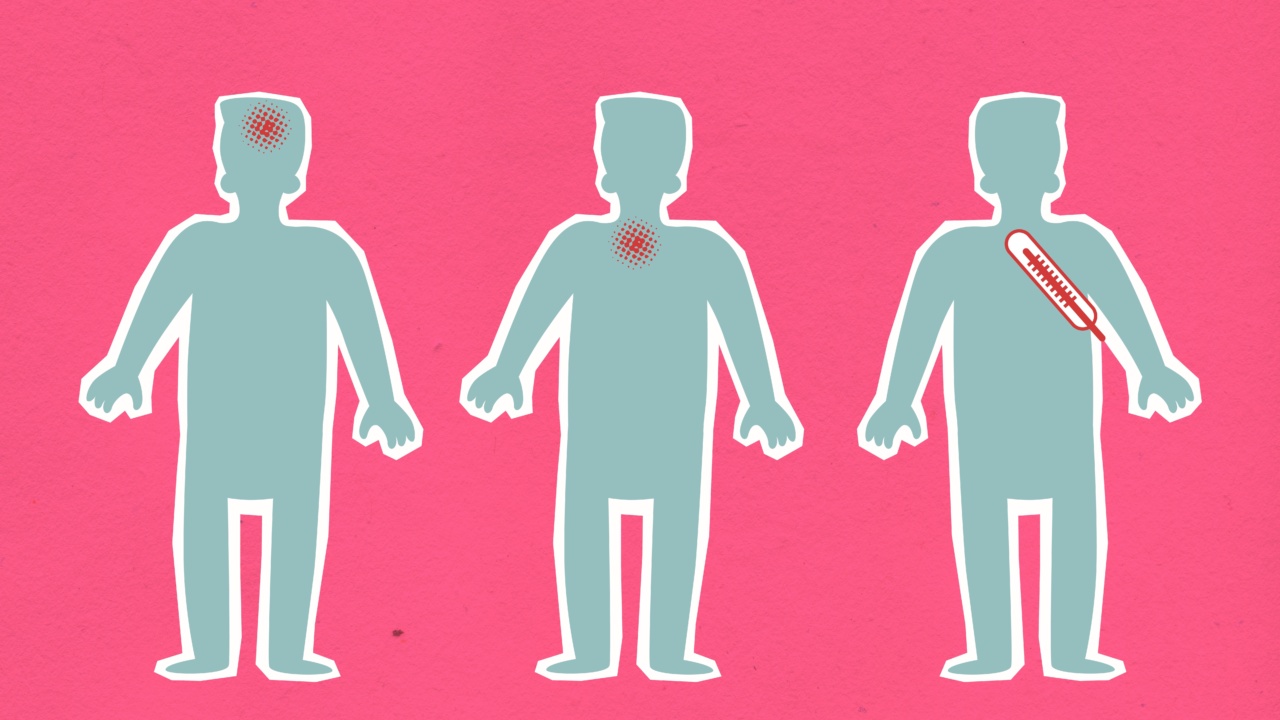A sore throat is a common condition that affects people of all ages. It is characterized by pain, scratchiness, or irritation of the throat, especially when swallowing.
A sore throat can be caused by various factors, such as allergies, dry air, pollutants, smoking, and infections. One of the most common causes of a sore throat is a viral infection, such as a cold or flu. These infections usually go away on their own, within a week or so, without any specific treatment.
What is Strep Throat?
Strep throat is a bacterial infection that causes inflammation and pain in the throat. It is caused by the bacteria group A Streptococcus, also known as GAS.
Strep throat is highly contagious and can easily spread from person to person, especially in crowded places, such as schools, daycare centers, and offices.
How to Tell the Difference between a Sore Throat and Strep Throat?
While a sore throat and strep throat share some common symptoms, there are some differences that can help you distinguish between the two. Here are some of the main differences:.
Symptoms of a Sore Throat
A sore throat caused by a viral infection usually comes with the following symptoms:.
- Swollen and tender glands in your neck (lymph nodes)
- A runny nose
- A cough
- A hoarse voice
- Sneezing
- A mild fever (less than 101°F or 38.3°C)
- A headache
- Muscle aches
Symptoms of Strep Throat
If you have strep throat, you are likely to experience the following symptoms:.
- Sudden and severe sore throat, without any other cold symptoms
- Pain when swallowing
- A fever (above 101°F or 38.3°C)
- Red and swollen tonsils, sometimes with white patches or pus
- Tiny red spots on the roof of the mouth (known as petechiae)
- A headache
- Nausea or vomiting, especially in children
- A general feeling of tiredness or weakness
How is Strep Throat Diagnosed?
If you have symptoms of strep throat, you should see a doctor or healthcare provider, who will do a physical exam and ask you some questions about your symptoms and medical history. They may also do some tests to confirm the diagnosis, such as:.
- A throat swab test: Your doctor will use a sterile cotton swab to take a sample of mucus from the back of your throat. The sample will be sent to a laboratory for analysis, where it will be tested for the presence of GAS bacteria.
- A rapid strep test: This is a quick and easy test that can give results in a few minutes. Your doctor will use a swab to take a sample of mucus from your throat, and then mix it with a special solution. If the solution turns yellow, it means that GAS bacteria are present.
- A throat culture: This test is more accurate but takes longer to get results. Your doctor will take a sample of mucus from your throat and send it to a laboratory for analysis. If GAS bacteria are present, the culture will show their growth within 24 to 48 hours.
How is Strep Throat Treated?
If you are diagnosed with strep throat, your doctor will prescribe antibiotics, such as penicillin or amoxicillin, to kill the bacteria. You will need to take the antibiotics for at least 10 days, even if you start feeling better before that.
It is important to finish the course of antibiotics as prescribed, to ensure that all the bacteria are eliminated and to prevent the infection from coming back or causing complications.
Your doctor may also recommend some self-care tips to relieve your symptoms and speed up your recovery, such as:.
- Get plenty of rest: Resting allows your body to focus on fighting the infection and healing itself.
- Drink plenty of fluids: Drinking water, tea, and soup can help keep you hydrated and soothe your throat.
- Gargle with warm salt water: Mix a teaspoon of salt in a cup of warm water and gargle it several times a day to reduce inflammation and pain in your throat.
- Suck on lozenges or hard candies: This can help stimulate saliva production and relieve dryness and irritation in your throat.
- Use a humidifier: Moistening the air can help ease breathing and reduce dryness and irritation in your throat.
Complications of Strep Throat
Strep throat can lead to some complications if left untreated or not properly treated. Some of these complications include:.
- Rheumatic fever: This is a rare but serious condition that can affect your heart, joints, skin, and nervous system. It can occur several weeks after the streptococcal infection and cause fever, joint pain, rash, and emotional instability. Rheumatic fever can cause permanent damage to your heart valves, leading to heart disease and heart failure.
- Kidney inflammation: This is another rare but serious complication that can affect your kidneys and cause swelling, pain, and blood in your urine. It can also lead to kidney failure.
- Abscesses: Strep throat can cause the formation of abscesses, or pockets of pus, in your throat or tonsils. These abscesses can cause severe pain, difficulty swallowing, and breathing problems.
- Scarlet fever: This is a bacterial infection that can occur as a result of strep throat and cause a rash, fever, sore throat, and swollen glands. It can also lead to complications such as kidney inflammation and rheumatic fever.
Prevention of Strep Throat
Strep throat can be prevented by taking some simple precautions, such as:.
- Washing your hands frequently, especially after coughing or sneezing and before eating or preparing food.
- Covering your mouth and nose with a tissue or your elbow when coughing or sneezing, and disposing of the tissue immediately.
- Avoiding close contact with people who have strep throat or other contagious illnesses.
- Not sharing personal items, such as towels, utensils, or drinks, with others.
Conclusion
A sore throat and strep throat can be easily confused, but they have different causes and symptoms. A sore throat caused by a viral infection usually gets better on its own, while strep throat requires antibiotics.
If you have symptoms of strep throat, it is important to see a doctor or healthcare provider, who can diagnose and treat the condition properly. If left untreated or not properly treated, strep throat can lead to serious complications that can affect your health and well-being.



























